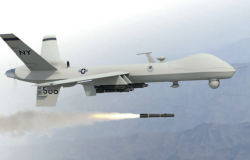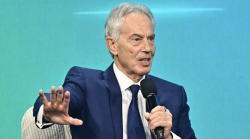Iran and 4 countries clash over reparations for 2020 crash
- 2022-02-11 05:21:38


 Pierre Rayer: Art, Science, and Happiness: The Universal Mission of Transmission to Future Generations through Patronage at the Louvre Abu Dhabi
Pierre Rayer: Art, Science, and Happiness: The Universal Mission of Transmission to Future Generations through Patronage at the Louvre Abu Dhabi Ahly crowned Super champions after dramatic extra-time win over Modern Future FC
Ahly crowned Super champions after dramatic extra-time win over Modern Future FC Yemeni Honey..A Development Wealth Threatened By Conflict And Climate Change
Yemeni Honey..A Development Wealth Threatened By Conflict And Climate Change California wildfires: Millions warned of possible power cut
California wildfires: Millions warned of possible power cut Central African rebels launch attacks near capital
Central African rebels launch attacks near capital Man accused of leaving girlfriend to freeze on Austria’s highest peak - he’s now facing prison
Man accused of leaving girlfriend to freeze on Austria’s highest peak - he’s now facing prison U.S. Drones Strike Targets Al-Qaeda Operatives in Marib
U.S. Drones Strike Targets Al-Qaeda Operatives in Marib Tony Blair will not join Trump’s Gaza “Peace Council”
Tony Blair will not join Trump’s Gaza “Peace Council” US Congress moves toward repeal of tough ‘Caesar’ sanctions on Syria
US Congress moves toward repeal of tough ‘Caesar’ sanctions on Syria Netanyahu: Israel to remain in buffer zone in southern Syria
Netanyahu: Israel to remain in buffer zone in southern Syria
